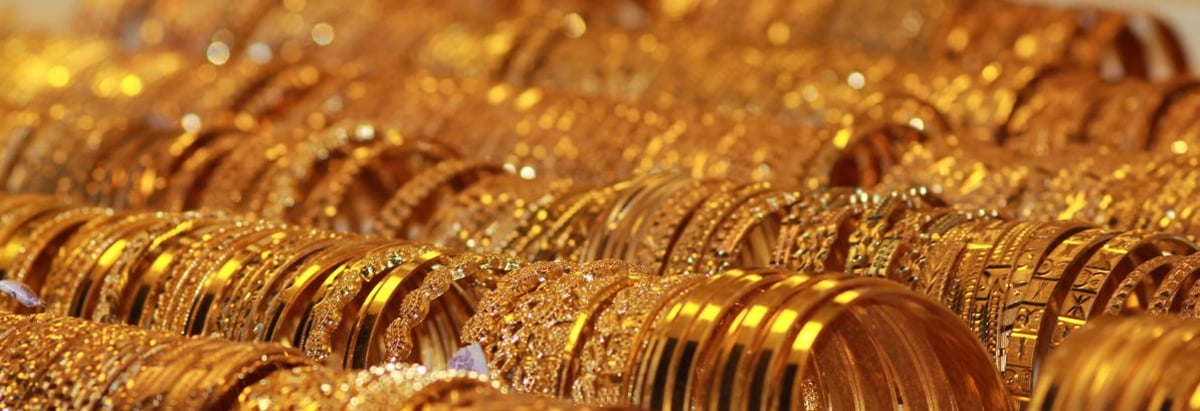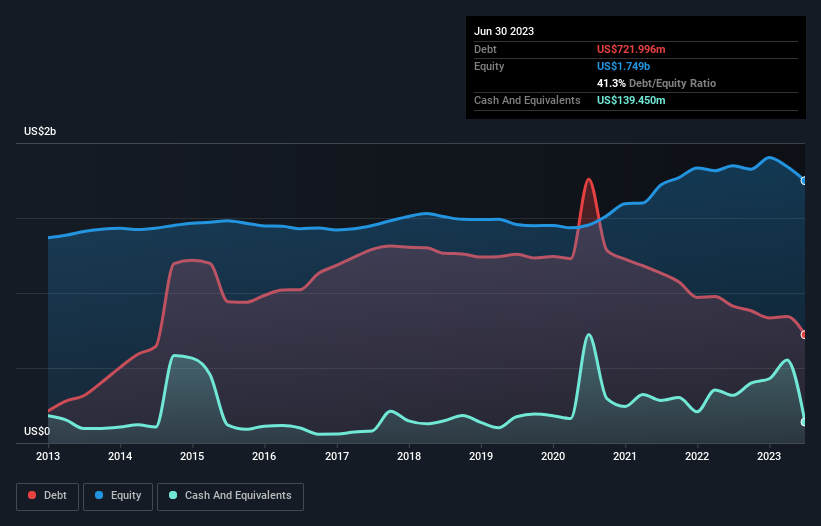- Canada
- /
- Metals and Mining
- /
- TSX:CGG
We Think China Gold International Resources (TSE:CGG) Is Taking Some Risk With Its Debt

Warren Buffett famously said, 'Volatility is far from synonymous with risk.' When we think about how risky a company is, we always like to look at its use of debt, since debt overload can lead to ruin. Importantly, China Gold International Resources Corp. Ltd. (TSE:CGG) does carry debt. But should shareholders be worried about its use of debt?
When Is Debt A Problem?
Debt is a tool to help businesses grow, but if a business is incapable of paying off its lenders, then it exists at their mercy. Ultimately, if the company can't fulfill its legal obligations to repay debt, shareholders could walk away with nothing. However, a more common (but still painful) scenario is that it has to raise new equity capital at a low price, thus permanently diluting shareholders. By replacing dilution, though, debt can be an extremely good tool for businesses that need capital to invest in growth at high rates of return. When we think about a company's use of debt, we first look at cash and debt together.
View our latest analysis for China Gold International Resources
What Is China Gold International Resources's Debt?
The image below, which you can click on for greater detail, shows that China Gold International Resources had debt of US$722.0m at the end of June 2023, a reduction from US$912.8m over a year. However, it does have US$139.5m in cash offsetting this, leading to net debt of about US$582.5m.

A Look At China Gold International Resources' Liabilities
The latest balance sheet data shows that China Gold International Resources had liabilities of US$326.5m due within a year, and liabilities of US$790.3m falling due after that. Offsetting this, it had US$139.5m in cash and US$16.5m in receivables that were due within 12 months. So its liabilities outweigh the sum of its cash and (near-term) receivables by US$960.8m.
This deficit is considerable relative to its market capitalization of US$1.56b, so it does suggest shareholders should keep an eye on China Gold International Resources' use of debt. Should its lenders demand that it shore up the balance sheet, shareholders would likely face severe dilution.
We measure a company's debt load relative to its earnings power by looking at its net debt divided by its earnings before interest, tax, depreciation, and amortization (EBITDA) and by calculating how easily its earnings before interest and tax (EBIT) cover its interest expense (interest cover). This way, we consider both the absolute quantum of the debt, as well as the interest rates paid on it.
China Gold International Resources's net debt of 1.6 times EBITDA suggests graceful use of debt. And the fact that its trailing twelve months of EBIT was 9.7 times its interest expenses harmonizes with that theme. The modesty of its debt load may become crucial for China Gold International Resources if management cannot prevent a repeat of the 43% cut to EBIT over the last year. Falling earnings (if the trend continues) could eventually make even modest debt quite risky. There's no doubt that we learn most about debt from the balance sheet. But ultimately the future profitability of the business will decide if China Gold International Resources can strengthen its balance sheet over time. So if you want to see what the professionals think, you might find this free report on analyst profit forecasts to be interesting.
Finally, a company can only pay off debt with cold hard cash, not accounting profits. So we always check how much of that EBIT is translated into free cash flow. Over the last three years, China Gold International Resources recorded free cash flow worth a fulsome 99% of its EBIT, which is stronger than we'd usually expect. That positions it well to pay down debt if desirable to do so.
Our View
China Gold International Resources's EBIT growth rate and level of total liabilities definitely weigh on it, in our esteem. But its conversion of EBIT to free cash flow tells a very different story, and suggests some resilience. We think that China Gold International Resources's debt does make it a bit risky, after considering the aforementioned data points together. That's not necessarily a bad thing, since leverage can boost returns on equity, but it is something to be aware of. There's no doubt that we learn most about debt from the balance sheet. However, not all investment risk resides within the balance sheet - far from it. For example, we've discovered 2 warning signs for China Gold International Resources that you should be aware of before investing here.
If, after all that, you're more interested in a fast growing company with a rock-solid balance sheet, then check out our list of net cash growth stocks without delay.
New: AI Stock Screener & Alerts
Our new AI Stock Screener scans the market every day to uncover opportunities.
• Dividend Powerhouses (3%+ Yield)
• Undervalued Small Caps with Insider Buying
• High growth Tech and AI Companies
Or build your own from over 50 metrics.
Have feedback on this article? Concerned about the content? Get in touch with us directly. Alternatively, email editorial-team (at) simplywallst.com.
This article by Simply Wall St is general in nature. We provide commentary based on historical data and analyst forecasts only using an unbiased methodology and our articles are not intended to be financial advice. It does not constitute a recommendation to buy or sell any stock, and does not take account of your objectives, or your financial situation. We aim to bring you long-term focused analysis driven by fundamental data. Note that our analysis may not factor in the latest price-sensitive company announcements or qualitative material. Simply Wall St has no position in any stocks mentioned.
About TSX:CGG
China Gold International Resources
A gold and base metal mining company, acquires, explores, develops, and mines mineral resources in the People’s Republic of China and Canada.
Excellent balance sheet with reasonable growth potential.
Similar Companies
Market Insights
Community Narratives



